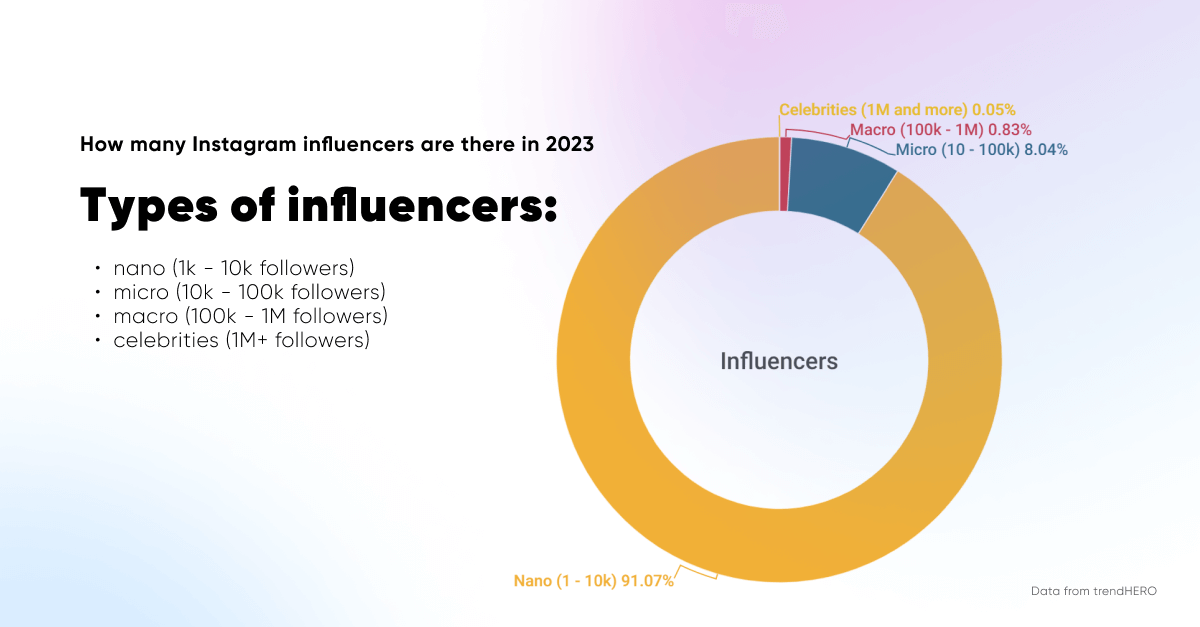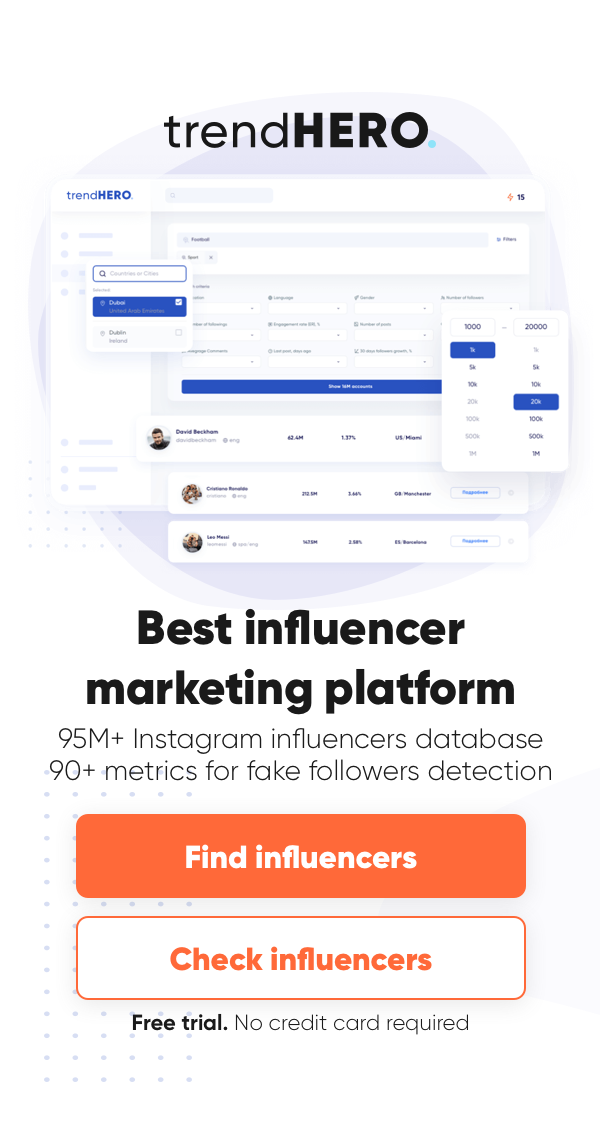- Home
- BLOG
- Influencers
- Micro-Influencers vs. Macro-Influencers: Which is Best for Small Ecommerce Businesses?
Influencer marketing is a crucial part of marketing campaigns for many ecommerce businesses, but for smaller ecommerce businesses, it can take time to choose between influencers. This article can help small ecommerce businesses choose between two distinct choices: micro or macro-influencers.
What is Influencer Marketing?

Photo by Magnus Mueller on Pexels
Influencer marketing is one of the more modern avenues that recently appeared in marketing. Suppose you somehow avoid it and don’t know what it is. In that case, influencer marketing is a form of marketing in which businesses partner with influential individuals or groups to promote their products and services.
It differs from traditional advertising because it focuses on creating relationships between brands and influencers. By leveraging the influence of these influencers, businesses can reach a wider audience and increase brand awareness. It feels less commercial than partnering with celebrities which is the norm for traditional media.
A crucial part of influencer marketing is identifying the right influencers to work with your brand or business. Influencers can influence their followers and create positive word-of-mouth for the product or service they are promoting.
With influencer marketing, brands can get access to new audiences, drive sales, and increase brand visibility on social media platforms.
There are different ways to categorize influencers for your ecommerce business, but the general one would be a micro-influencer vs. a macro-influencer.
What Is a Micro-Influencer?
Most of the time, when people think of influencers, they think of people with followers of millions and millions of people. However, due to the growth of influencer marketing, you don’t have to have millions of followers to count as an influencer. This opportunity is where a micro-influencer comes in.
Micro-influencers are people or groups with more minor but highly engaged followers on social media, usually fewer than 100,000 followers. They typically have between 10,000 to 50,000 followers and specialize in a particular niche or topic. Nano-influencers have between 1,000 to 10,000
They tend to have more influence over their followers than prominent influencers because their audience sees them as more authentic and trustworthy. This feature makes them ideal for brands looking to reach a specific target audience with their message. Since they can do this, they can have higher conversions for brands that work with them.
One more thing you need to know about micro-influencers. There are significantly more micro-influencers in the world than macro. On average, 10 times more.

Advantages of Micro-Influencers for Small Ecommerce Businesses
Now that you know what a micro-influencer is, let’s dive deeper into the advantages a small ecommerce business can have when working with one.
Niche Expertise
Influencer marketing has become a powerful tool for small ecommerce businesses, and micro-influencers play a vital role in this. With their niche expertise and ability to reach a specific target audience, micro-influencers can help small ecommerce businesses increase their visibility and build brand trust.
As a smaller business, you may not have a strong brand identity yet, and you aren’t likely to be a top-of-mind brand for many customers. Micro-influencers can provide an authentic voice for the business, which helps create relationships with potential customers and increase e-commerce conversion rates. They also can create content tailored specifically to the needs of their followers, which can help drive sales and engagement.
By leveraging micro-influencers expertise, small ecommerce businesses can benefit from increased visibility, trust in their brand, and more targeted content that resonates with their target audience.
Higher Engagement Rates
When looking for an influencer to work with, it is essential to look beyond the number of followers when working with a micro-influencer and focus on their engagement rates instead.
Engagement rates tell you how many people interact with your content – not just how many followers you have. You can calculate it by dividing the number of engagements (likes, comments, shares, etc.) by the total number of followers.
This metric is significant for small ecommerce businesses because they need more resources and need to ensure their campaigns reach their target audience and drive sales.
By looking at engagement rates instead of followers, you can better understand which micro-influencers are most effective in helping you reach your goals.
Authenticity and Trust
Too many controversial but big-name influencers have become too big for customers to trust. In the beginning stages of a small ecommerce business, getting your customers’ trust is something you want to hold onto. Thus, you should work with micro-influencers instead.
Micro-influencers have a much closer connection with their followers than prominent influencers do. They are seen as more genuine and trustworthy because they share more personal and relatable content. After all, it’s much harder to cater to everybody when your followers are in the millions compared to the number of followers of micro-influencers.
Cost-Effectiveness
Micro-influencers work well for small business influencer marketing campaigns because of the small business’ budget and the influencers’ audience reach. Of course, they’re also much more affordable than many traditional marketing efforts and campaigns.
It’s also easier to track the success of an influencer marketing campaign with a micro-influencer than with a traditional marketing campaign.
Depending on the creator you work with, some of them might even engage with your brand without you having to pay them. However, it’s good business to provide your influencers with compensation if you want success in the long run for your ecommerce business.
What Is a Macro-Influencer?
When you think of “traditional” influencers, you’re most likely thinking of macro influencers. Macro-influencers typically have more than 100,000 followers and often specialize in a particular niche or industry but due to their size, they may dabble in many other types of audiences.
Like any other influencer, they can use their influence to promote products, services, and brands to their followers.
Macro-influencers effectively allow brands to reach a large audience with targeted messaging that resonates with their target market. Companies can leverage macro-influencers to create long-term customer relationships and build brand loyalty.
Businesses can sway a considerable chunk of audiences into their favor simply by working with or getting some good PR from a macro-influencer.
Advantages of Macro-Influencers for Small Ecommerce Businesses
After learning more about macro-influencers, let’s check out their benefits for a small ecommerce business to work with them.
Wide Reach and Exposure
Of course, their expansive reach is the most obvious benefit of working with a macro-influencer. Macro-influencers have a large following of loyal fans who are already interested in the products and services they are promoting.
If they shed some light on a small business, the opportunity to tap into their existing fan base and create an even bigger following for their brand becomes available. Moreover, working with macro-influencers can help businesses increase brand awareness by leveraging the influencer’s reach to share their message and build trust with potential customers.
You might end up reaching people and a massive volume of them without you anticipating if they shout out your products.
Established Credibility
For small ecommerce businesses, the established credibility of macro-influencers can be a powerful asset in building trust and engagement with their target audience. Macro-influencers have built an audience that trusts them and respects their opinion, making it easier for small businesses to reach out to potential customers.
Their established credibility also gives small businesses a chance to tap into a much larger market than they would have access to otherwise. With the help of macro-influencers, these businesses can reach new audiences and increase their visibility in the digital space.
Furthermore, working with macro-influencers helps small ecommerce businesses build relationships with potential customers and create more meaningful connections with them.
Content Creation
Many small ecommerce businesses could benefit from creating content to get more paying customers. However, if you work with a macro-influencer, you can get content from them that promotes your products and reaches an audience more significantly than your content could.
Also, they can have better content ideas that are more authentic to them while still promoting your brand positively than you could have. Therefore, communicate clearly with the macro-influencer you’re working with regarding how you want to work with them. Sometimes, sending your products their way is all it takes.
Drawbacks of Collaborating With a Macro-Influencer
There are some distinct drawbacks to a small ecommerce business that works with a macro-influencer. It’s a good idea to know them to prepare yourself properly.
Cost
If you don’t authentically and organically get the attention of a macro-influencer, then hiring macro-influencers can be costly. These influencers have large followings, and their services come at a high price due to the amount of exposure they can bring to a business.
This expense can be incredibly challenging for small ecommerce businesses that may not have the budget to hire macro-influencers
In addition, these influencers may require additional compensation to promote the business’s products or services. As such, small ecommerce businesses should carefully consider all their options before hiring a macro-influencer.
Engagement and Authenticity
Since macro-influencers usually have millions of people listening to them, finding a high engagement rate can take a lot of work, especially compared to micro-influencers. Also, their access to high life can make them lose their authenticity fast, so they have to keep these in mind for a small brand to work with them.
If they have a lower engagement rate, you may have fewer conversions if you work with them on a marketing campaign.
Are Macro or Micro-Influencers Better?
There is no wrong or right answer when working with which influencer is better. However, a micro-influencer might be better if you have a limited budget with lower risk tolerance for your marketing campaigns.
At the heart of it all, always do a background search on the influencer you want to work with for your business. By doing your research, you can avoid an influencer marketing catastrophe from happening before you ever engage with the said influencer.
Conclusion
With this article, you should be more able to understand and weigh the pros and cons of working with different influencers. That way, you can have a more successful influencer marketing campaign should you choose to organize one soon.
Instagram Engagement Rate Calculator For Free
Check any influencer's Engagement rate and analyze his or her followers growth history
Other free tools: Follower Count History, Instagram Follower Count, CPM Calculator






